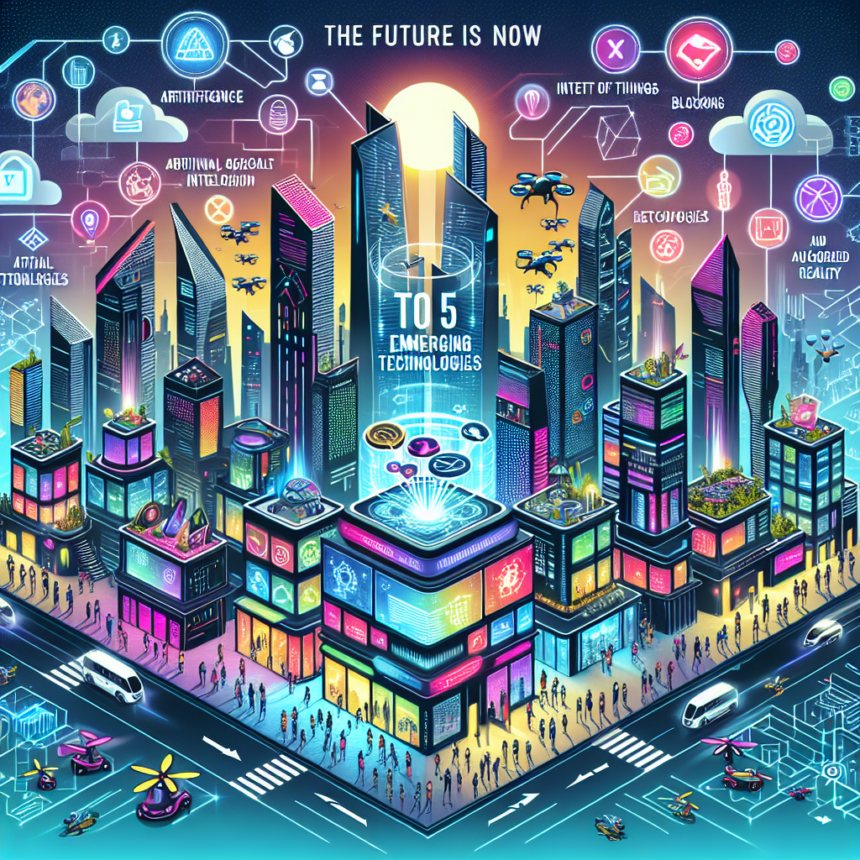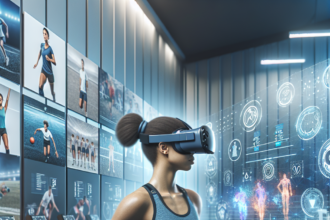As we navigate through the 21st century, we find ourselves at the forefront of an technology revolution, one that is reshaping our lives and work in unprecedented ways. These emerging technologies not only promise convenience and efficiency but also have the potential to address some of the world’s most pressing challenges. In this article, we explore the top five technologies that are transforming our world and shaping the future that is already here.
1. Artificial Intelligence (AI)
AI is arguably the most influential technology affecting every aspect of human life and business. It encompasses machine learning, natural language processing, and computer vision, allowing machines to analyze data, understand language, and make decisions. AI applications are already transforming industries—from healthcare, where it assists in diagnosing diseases, to finance, where it manages investments.
AI-driven tools can enhance productivity, allowing companies to automate routine tasks and allocate resources more efficiently. As AI continues to evolve, it holds promise for developing personalized education, improving customer service through chatbots, and even reducing carbon footprints with smarter energy management.
2. Internet of Things (IoT)
The Internet of Things refers to the network of interconnected devices that communicate and share data with one another. With the proliferation of smart devices—ranging from smartphones to smart appliances—IoT has penetrated homes, industries, and cities, enabling real-time data collection and analysis.
In homes, IoT devices enhance convenience and security, while in industries, they optimize supply chains and maintenance schedules. Smart cities leverage IoT to improve transportation, reduce waste, and increase sustainability, transitioning urban areas into eco-friendly spaces. As IoT technology advances, we can expect more connected environments that provide better quality of life.
3. Blockchain Technology
Originally recognized as the foundation of cryptocurrencies like Bitcoin, blockchain technology is now touted for its potential to enhance security, transparency, and efficiency across various sectors. A decentralized ledger, blockchain enables the secure and immutable transfer of data without a central authority, making it ideal for financial transactions, supply chain management, and identity verification.
In finance, blockchain can significantly reduce fraud and enhance transaction speed. Beyond finance, it holds promise in healthcare, where it can securely store patient records, and in voting systems, where it might usher in greater electoral integrity. The transparency and security features of blockchain technology are likely to transform how we interact and trust systems in the future.
4. Quantum Computing
While still in its nascent stages, quantum computing is an area of research that could exponentially increase computational power compared to traditional computers. By harnessing the principles of quantum mechanics, these computers have the potential to solve complex problems in seconds, a task that would take classical computers years to accomplish.
The implications of quantum computing span across sectors. In pharmaceuticals, they can simulate molecules to expedite drug discovery, while in logistics, they can optimize routes and supply chains. However, as quantum technology advances, it raises concerns about data encryption and security, prompting researchers to explore quantum-safe encryption methods.
5. Augmented Reality (AR) and Virtual Reality (VR)
AR and VR technologies are revolutionizing how we experience both digital content and the physical world. VR immerses users in completely digital environments, ideal for gaming, training simulations, and virtual tourism, while AR enhances the real world with digital overlays, creating interactive experiences.
These technologies offer significant potential in education, healthcare, and remote collaboration. In education, VR can transport students to historical events or distant planets, enriching their learning experience. In healthcare, AR can assist surgeons by overlaying critical data during operations. As AR and VR become more accessible, they will likely reshape how we interact with everyday tasks and games.
Conclusion
The future is indeed now, with these emerging technologies taking center stage in our evolving world. While they hold great promise for addressing societal challenges, it’s crucial to navigate their adoption responsibly to mitigate potential risks, including job displacement and ethical concerns. Embracing innovation while maintaining ethical integrity will ultimately define how these technologies shape our future.
FAQs
1. What is the primary benefit of AI?
AI enhances productivity and decision-making by automating tasks and analyzing vast amounts of data quickly.
2. How does IoT improve daily life?
IoT devices increase convenience, enhance security, and allow for greater efficiency in managing everyday tasks like home energy usage.
3. How secure is blockchain technology?
Blockchain provides high security due to its decentralized nature and cryptographic principles, making it difficult to alter data once recorded.
4. Are quantum computers widely used?
Currently, quantum computers are still in experimental stages. Their practical applications are being researched, with more advancements expected in the near future.
5. What are the potential uses of AR/VR?
AR and VR have applications in education, healthcare, entertainment, and remote collaboration, providing immersive experiences and interactive simulations.










